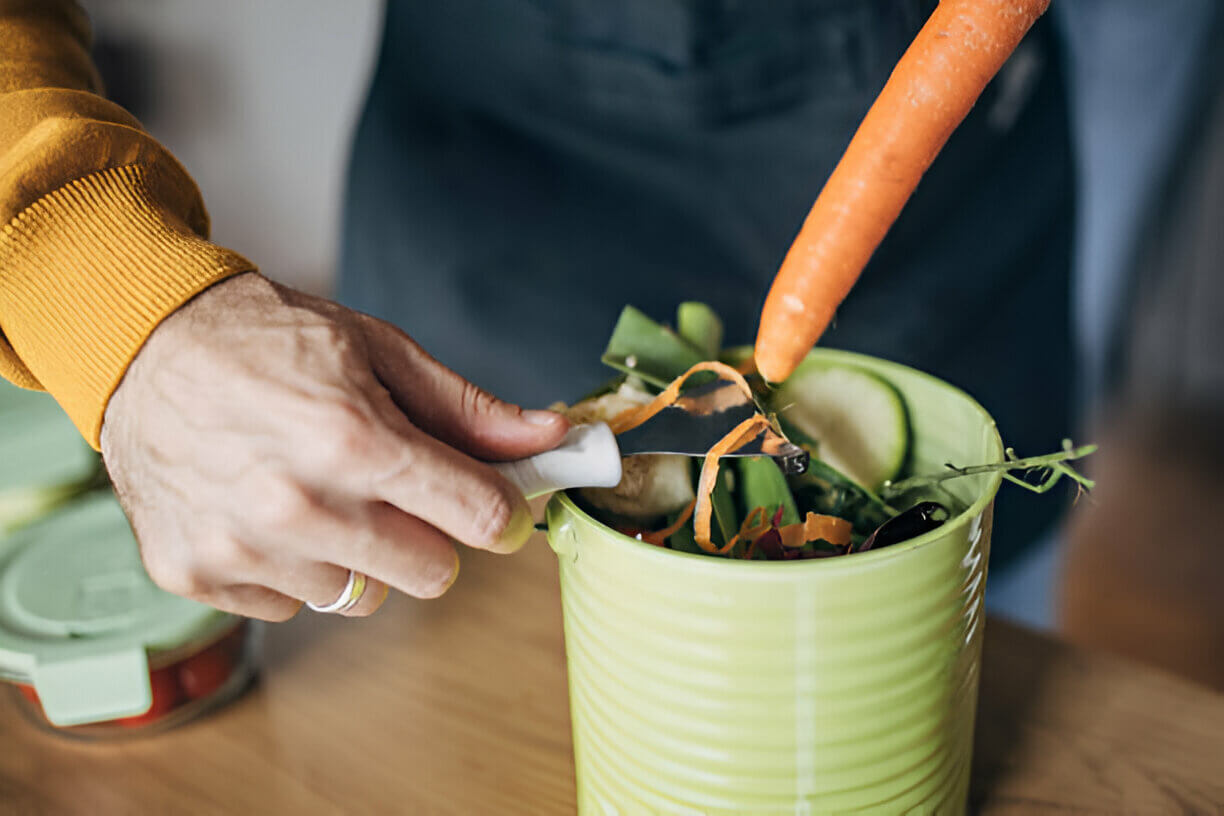Sustainability in the kitchen is not just about recycling; it encompasses energy efficiency, waste reduction, water conservation, and the use of eco-friendly materials. Adopting sustainable practices can significantly contribute to a healthier environment and a more efficient home.

Sustainable Kitchen Design
Energy-Efficient Appliances
Choosing energy-efficient appliances is a cornerstone of a sustainable kitchen. Look for appliances with the Energy Star label, which indicates they meet energy efficiency guidelines set by the Environmental Protection Agency. Energy-efficient refrigerators, dishwashers, and ovens not only reduce your carbon footprint but also lower your utility bills. For instance, an Energy Star-rated refrigerator uses about 15% less energy than non-rated models, translating into significant energy savings over time.
Eco-Friendly Materials
When designing or renovating your kitchen, consider using sustainable materials for countertops and cabinets. Recycled glass, bamboo, and reclaimed wood are excellent choices. These materials reduce the demand for new resources and often come with a unique, stylish look. Additionally, opt for low-VOC (volatile organic compounds) paints and finishes to improve indoor air quality. Low-VOC products release fewer harmful chemicals, making your kitchen safer for you and your family.
Waste Management in the Kitchen
Recycling and Composting
Implementing a robust recycling and composting system is essential for managing kitchen waste. Set up separate bins for recyclables like glass, plastic, and paper. Many communities offer curbside recycling programs, making it easy to dispose of these materials properly. Composting kitchen scraps, such as vegetable peels and coffee grounds, reduces landfill waste and produces nutrient-rich soil for gardening. If you don’t have a garden, many cities have composting programs that accept food scraps.
Reducing Single-Use Plastics
Minimize the use of single-use plastics by replacing disposable items with reusable alternatives. Use cloth bags for grocery shopping, beeswax wraps instead of plastic wrap, and cloth napkins instead of paper ones. These small changes can significantly reduce your plastic waste and are often more cost-effective in the long run.
Water Conservation
Efficient Dishwashing Practices
Conserving water is another critical aspect of a sustainable kitchen. When washing dishes, use a basin of soapy water instead of running the tap continuously. If you have a dishwasher, only run it when it’s full, and use the eco or energy-saving mode. This can save gallons of water each year.
Low-Flow Faucets and Fixtures
Installing low-flow faucets and fixtures can dramatically reduce water usage. These fixtures are designed to use less water without compromising on performance, helping you conserve water effortlessly.
Green Kitchen Products
Biodegradable and Reusable Kitchenware
Switching to biodegradable and reusable kitchenware is an easy way to reduce waste. Glass and stainless steel containers are excellent alternatives to plastic. They are durable, safe for food storage, and often more stylish. Eco-friendly utensils, such as wooden spoons and bamboo cutting boards, are also great choices. These materials are renewable and have a smaller environmental footprint compared to plastic.
Sustainable Cooking and Food Preparation
Eco-Friendly Cooking Methods
Adopt energy-efficient cooking methods to save energy and reduce your carbon footprint. Pressure cookers, slow cookers, and induction cooktops use less energy compared to traditional cooking methods. Batch cooking and meal prep can also be energy-efficient, as cooking larger quantities at once reduces overall energy use.
Choosing Sustainable Foods
Opt for locally sourced and organic produce to reduce your carbon footprint and support local farmers. Locally grown foods require less transportation and often come with less packaging. Additionally, consider incorporating more plant-based meals into your diet. Plant-based diets have a lower environmental impact compared to diets high in meat and dairy.
Practical Tips for Daily Habits
Eco-Friendly Clean-Up
Use natural cleaning products to keep your kitchen clean and toxin-free. You can make effective cleaning solutions with ingredients like vinegar, baking soda, and lemon. Reusable cleaning cloths, such as microfiber towels, are excellent alternatives to paper towels. They are washable and can be used multiple times, reducing waste and saving money.
Smart Grocery Shopping
Make sustainable choices when grocery shopping. Buy in bulk to reduce packaging waste, and bring your own reusable bags. Choosing seasonal and local produce not only supports local farmers but also reduces the environmental impact of transportation.
Conclusion
Integrating sustainable practices into your kitchen involves a combination of thoughtful design choices, efficient use of resources, and daily habits that reduce waste and conserve energy. By adopting these practices, you can create a healthier, more sustainable kitchen that benefits both you and the environment. Start small, make incremental changes, and enjoy the positive impact of your efforts.




